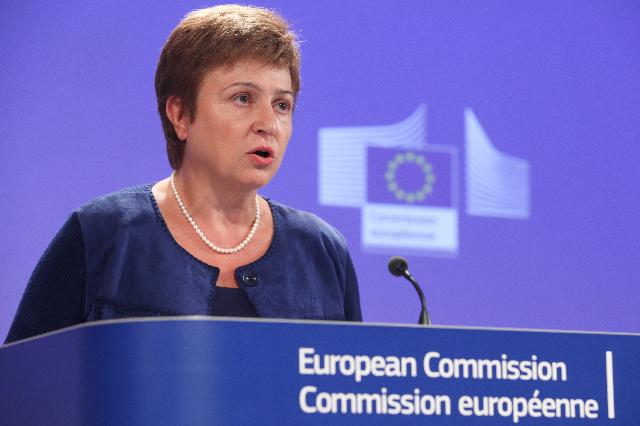The cross border. A “humanitarian traffic” in Syria

(BRUSSELS2 - in Amman and Za'atari) “It's a kind of traffic. But humanitarian traffic” indicates an official of an NGO who wishes to preserve the seal of anonymity. Because the cross-border practice, which today represents nearly 20% of the humanitarian aid distributed for the Syrian conflict, is very risky and unofficial. Used on the Turkish and Jordanian border, against the advice of the authorities, it is above all discreet.
A discreet practice
Humanitarian workers, members of local Syrian NGOs, cross the border with unmarked vehicles to reach a meeting place, fixed by a Western humanitarian organization in the border towns. Once they arrive at the locality, they load the aid stocks (medical equipment, care, shelters, etc.) into the cars and leave, without any emblem or logo on the other side of the border. When possible, transport is by air. An organization charters equipment directly from Italy, the Netherlands or France to the interior of Syria. If the airline refuses to take this risk, the plane stops next to the border and the aid is picked up by local aid workers. At any time, they can be arrested, kidnapped or killed by one or other of the protagonists, be it the regular army, the Free Syrian Army or the army of the host country.
The humanitarian tribute
“About XNUMX aid workers are in prison” says a member of an NGO. And some are in the prisons of the host countries, such as those in Jordan. "And in these cases, the worker can only count on himself". In addition to the question of the protection of humanitarian workers, this practice also presents a significant risk of misappropriation. Medical equipment is thus systematically removed by the Damascus authorities in order to treat their own soldiers. And yet, despite the dangers, the United Nations and other states like France promote this practice. “We use all available roads, all means” says a diplomat. Because the humanitarian situation, like the military, is at an impasse. The “numerus clausus”, imposed by the Syrian authorities, authorizes between 15 and 60 NGOs inside the country, a ridiculous number. “In reality, it would take more than two hundred”. Because the needs are enormous. The lack of care, particularly for chronic diseases such as respiratory diseases and diabetes, causes thousands of deaths. But after three years of conflict, official channels are no longer enough.
Kurdistan, new official cross-border route
“This aid is complementary to official aid”. Today, it is only in West Kurdistan and northeast Syria that aid workers can cross the border officially. "There was a beginning of an agreement from the Syrian government, particularly for airspace" says a diplomat. “It's an 'ad hoc' cross-border arrangement. » Going through Kurdistan also has an advantage: the governorate of Hassaké in the northeast of Syria is “very isolated”. In fact, the checkpoints set up by the regular Syrian army or by the many opposition groups inside the country are less frequent. Humanitarian aid would thus be more likely to arrive safely. But it's only one way. And while at the diplomatic level, official arrangements are made to authorize this cross-border practice, the reality remains very different on the ground.
A resolution without consequence
The Security Council has "required", in a resolution adopted on February 22, the immediate authorization of humanitarian access "including across lines of conflict and across the borders of neighboring countries". "It's a significant step" insists an expert of the file. Because so far, there was only one statement by the President of the Council on the subject, dating from October 2013. But the resolution has not had much effect. It could have a role in enabling Jordanian NGOs to pressure the Ministry of Interior and Foreign Affairs to allow the practice. But the pessimism remains: "They won't allow it" says a member of a Jordanian NGO. Because “they want to keep an eye on what is happening at the border”. And if they don't allow cross-border, "there will be nothing" says a diplomat. The text of the resolution does not mention any " result " in case of non-compliance with the resolution. This omission was one of the conditions for the resolution to be adopted unanimously, thus avoiding the Russian veto.
(Loreline Merelle in Jordan)
